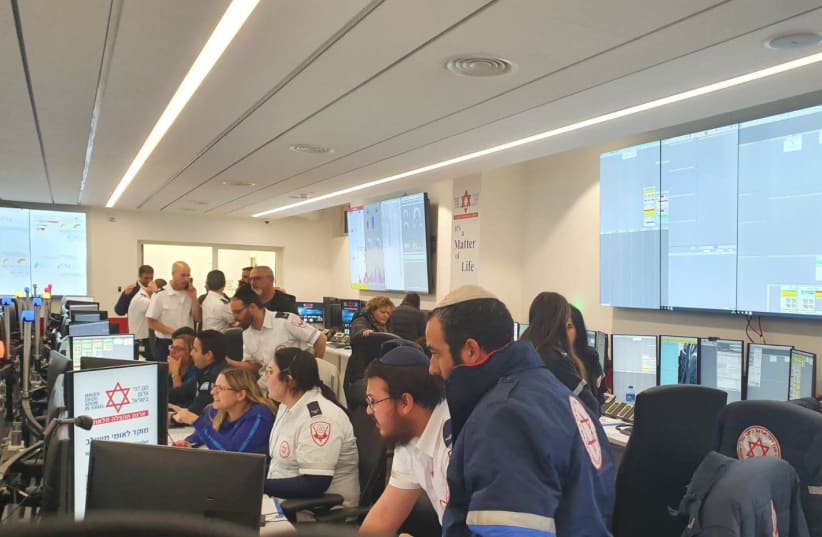Prime Minister Benjamin Netanyahu and Health Minister Ya'acov Litzman are meeting Sunday morning with senior officials to discuss the growing concern over the spread of the coronavirus. The meeting comes after hundreds of Israelis have called a special hotline focused on treating people suspected of having contracted the virus and the announcement that at least nine South Koreans who were in Israel were diagnosed with it.The hotline is for anyone who has been in contact with a coronavirus patient, is suspected of being infected with the virus, or has fever, cough or other respiratory symptoms. When a person calls, MDA explained, a medic or paramedic answers the call and determines whether to join a doctor onto the call, who will then decide how to proceed with medical care. Options for next steps include sending an ambulance to evacuate the patient to a hospital or sending a paramedic to the person’s home to take a blood sample for evaluation at Sheba Medical Center’s laboratory. So far, according to MDA, dozens of paramedics have undergone dedicated training on how to collect samples from potential patients in order to test for the virus. They have also been trained in how to stay fully protected against the infection themselves while taking these samples. On Sunday, MDA is scheduled to train an additional 70 paramedics at its Paramedic Education Center in Ramat Gan. Participants will practice taking patient samples while wearing full anti-contamination kits. The swell of calls to the hotlines came following an announcement Saturday that nine members of a large group of South Koreans who had been in the country from February 8 to 15 had been diagnosed with coronavirus and might have had the virus while in Israel. The South Koreans traveled all over the country with stops in Jerusalem and Bethlehem, among other places.
Stay updated with the latest news!
Subscribe to The Jerusalem Post Newsletter
At the start of the week, 180 Israeli students were put into isolation after reporting being exposed to the tourists.On Sunday, the Health Ministry sent a memo to citizens announcing where the
South Koreans went during their trip as well as reviewing guidelines about what to do if people came into contact with the pilgrims, including putting themselves into a 14-day period of isolation.
The ministry also recommends that if signs of illness develop – fever over 38°C, cough or other respiratory symptoms – individuals should seek medical attention.
The ministry said that as of Sunday, anyone who has been in South Korea or Japan during the last 14 days must put themselves into house isolation until 14 days have elapsed from the time of their departure from these countries.Japan and South Korea were added to a growing list of countries that the ministry has labeled as contagious; it is requiring travelers who return from them to enter quarantine. The other countries are China, Hong Kong, Macau, Singapore and Thailand.
As of Sunday, the entry of non-residents or citizens of Israel who were in South Korea during the 14 days prior to their arrival in Israel has been prevented. As of Monday, this directive will also apply for those arriving from Japan.
In addition, anyone who has been in Taiwan, Italy or Australia during the past 14 days and who develops disease symptoms should be checked according to the guidelines listed on the Health Ministry website.President Reuven Rivlin arrived in Australia on Friday and is expected to spend a week there visiting Sydney, Melbourne and Canberra. Following the ministry's instructions regarding those returning from Australia, the spokesperson of the President's Residence issued the following statement: "The entourage from Beit HaNasi in Australia is not expected to change its planned schedule at present for the president's official visit. The director-general is in touch with the director-general of the ministry on the subject and we will update on any change that is necessary."
